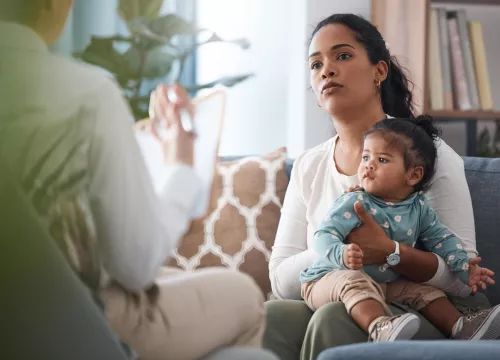Impact Story
USC School Behavioral Health Team
Enhancing Capacity in School Mental Health
The Centers for Disease Control and Prevention (CDC) says nearly 10 percent of children ages 3 to 17 have anxiety or attention-deficit disorders. CDC data also shows suicide is a leading cause of death for 15- to 19-year-olds. With so many children and teens affected by mental health issues, there is a dire need for services.
Project Goals
The University of South Carolina created the School Behavioral Health Team to address mental health issues in K-12 schools. Its goal is to help students get ready for school mental health via internship and enhancement programs for undergraduate and graduate students.
Though managed by USC, the School Behavioral Health Team recruits and places students across the state. Undergraduate interns in K-12 schools work with psychologists, social workers, counselors and other professionals who support the mental health of students. They get training on basic skills to support mental health experts and are given exposure to potential career paths.
Graduate students receive training from experts in school mental health. They, too, are given exposure to potential paths for their post-graduate career.
Interns and support staff have reached more than 24,000 students.
Results
Training
Grant funds from the BCBSSC Foundation have enabled USC to exceed the number of students they originally set out to support.
- As of Spring 2024, SBHT has trained 32 undergraduate school mental health liaisons and 35 graduate Magill Interns.
- An additional 80 graduate students have been trained through the School Mental Health Graduate Enhancement program.
- Twenty interns reported that they now plan to pursue graduate training or careers in the field.
Funding from the BlueCross BlueShield of South Carolina Foundation has been instrumental in creating a school mental health career ladder in South Carolina. Our undergraduate interns and graduate trainees routinely identify our program as being a key factor in their decision to enter school mental health graduate programs and professional careers. This funding is opening opportunities for students to see behind the traditionally closed doors of the mental health profession.
— Courtnie Collins, Psy.D. Research Assistant Professor, University of South Carolina
Direct Impact
Interns helped implement prevention and early intervention strategies to support students' diverse mental health needs. Most importantly, they were given the latitude to address needs unique to their students and their site. They authored monthly newsletters about social emotional learning, created kindness trees, ran bake sales to revamp the school counseling office, and created bilingual documents to make important information accessible to Spanish-speaking students.
- Interns and support staff have reached more than 24,000 students.
- Graduate interns directly provided effective and new mental health interventions for students and families requiring individual mental health services.


